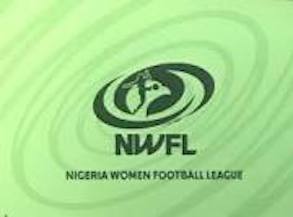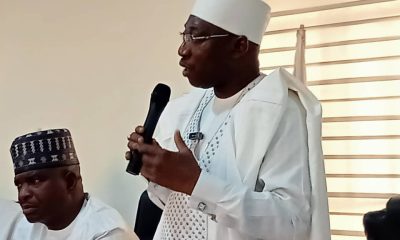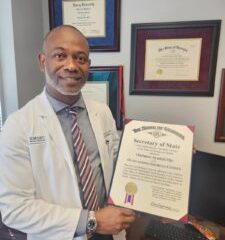Health
World AIDS Day: Stigma, Discrimination Keeping Individuals from Seeking Essential Care – AHF

From Attah Ede, Makurdi
As the world marked 2024 AIDS Day, a Non-Governmental Organization (NGO), AIDS Healthcare Foundation (AHF) Nigeria, has lamented that stigma and discrimination Stigma has continue to keep individuals from seeking essential care, while many key populations face substantial barriers to accessing treatmentThe organization put the HIV global infection rate at 4,000 per week, maintaining that there is need for enhanced preventive measures, particularly among young women and adolescent girls who are mostly at risk.
AHF Africa Bureau Chief, Dr. Penninah Iutung, gave this indication in a statement signed by the Marketing and Advocacy Manager, Steve Aborishade, and made available to newsmen in Makurdi.According to Dr Iutung said people must prioritize the use of condoms, saying that with the introduction of innovative prevention tools like the Dapivirine vaginal ring to Lenacapvir, Pre-Exposure Prophylaxis (PrEP), and Post-Exposure Prophylaxis (PEP), the ability to halt new transmissions has never been greater.”The commemoration is to signify that, it’s Not Over” in the fight against HIV/AIDS, while raising the needed awareness, promote prevention, testing, and treatment, and rally support to all those affected by HIV/AIDS in Nigeria and globally.”Despite decades of progress, around 40 million people globally are living with HIV, more than half of whom are women and girls, with approximately 1.3 million new infections reported each year, according to UNAIDS. Stigma and discrimination continue to keep individuals from seeking essential care, and many key populations face substantial barriers to accessing treatment. “This World AIDS Day event will spotlight these challenges, emphasizing the need to keep HIV/AIDS a priority on national and global public health agendas.AHF Africa Bureau Chief also noted that increased funding for HIV/AIDS, community-led initiatives, and favorable policies to fight stigma and discrimination remained crucial for expanding access to prevention and treatment, especially for at-risk groups and in the global effort to control AIDS.According to the statement, AHF Nigeria, Country Programme Director (CPD), Dr. Echey Ijezie, said ‘’In Nigeria, AHF is particularly reinforcing the need to embrace Comprehensive age-appropriate Sexuality Education (CSE), to empower adolescents and young people with skills and knowledge to negotiate safer sexual behaviors, with the population being the most at risk to STIs including HIV/AIDS.”The Organization, in the statement titled “It’s Not Over until AIDS is Defeated” said in recognition of World AIDS Day 2024 on December 1, AHF Nigeria will host a commemorative event at the Water Fountain, by Nwaniba Street roundabout, in the city center of Uyo, Akwa Ibom state on December 2, 2024.The statement further explained that World AIDS Day serves as a vital platform for HIV/AIDS advocates to acknowledge the progress made, remember those we have lost to AIDS-related illnesses and those who carry on the fight, and call on governments worldwide to commit the necessary resources and political support to end HIV/AIDS. “On this World AIDS Day, we’re reminded: It’s Not Over”, it concluded.economy
Firm Boosts Access to Dairy Nutrition with Affordable Peak Mini
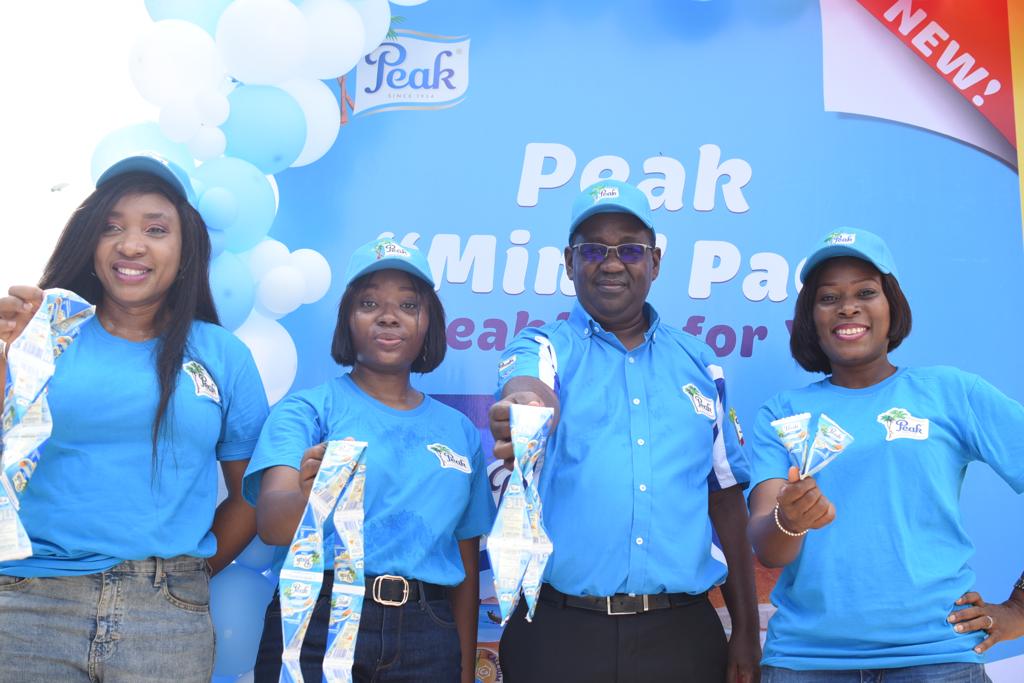
From Anthony Nwachukwu, Lagos
Dairy brand, Peak Milk has boosted Nigerians’ accessibility to its quality dairy nutrition range with the introduction of the budget-friendly Peak Mini – a smaller, more affordable pack from its signature Peak Evaporated Milk.
Unveiling the dairy brand, the producer, FrieslandCampina WAMCO Nigeria PLC, restated its commitment to providing high-quality dairy products to consumers as it has been doing in over 70 years in Nigeria.
According to WAMCO, the Peak Mini evaporated milk will provide affordable breakfast within the reach of every home with a budget-friendly nutritional breakfast with the same rich, creamy taste and high-quality.
Senior Brand Manager of Peak Milk, Moninnuola Kassim, stated that with Peak Mini, the company is “directly addressing the challenges many Nigerians face daily, one of which is affordability.
“Our smaller, affordable Peak Mini packs ensure that quality dairy nutrition remains within reach for everyone, regardless of income level.”
According to her, “many consumers have had to compromise on nutrition when considering costs, but with Peak Mini, that trade-off is no longer necessary.
The brand, Kassim said, maintains the same premium taste and nutritional benefits in a convenient and cost-effective package, and whether for breakfast cereals, tea or other meals, this innovation ensures that consumers no longer need to choose between quality and affordability.
According to her, FrieslandCampina WAMCO believes that every Nigerian deserves access to quality, nutritious dairy products,” and “Peak Mini is another step towards fulfilling that mission by providing a practical solution that meets the needs of everyday consumers.”
| ReplyReply allForwardAdd reaction |
Education
Abuja 2025: The Global Sickle Cell Congress Comes Home
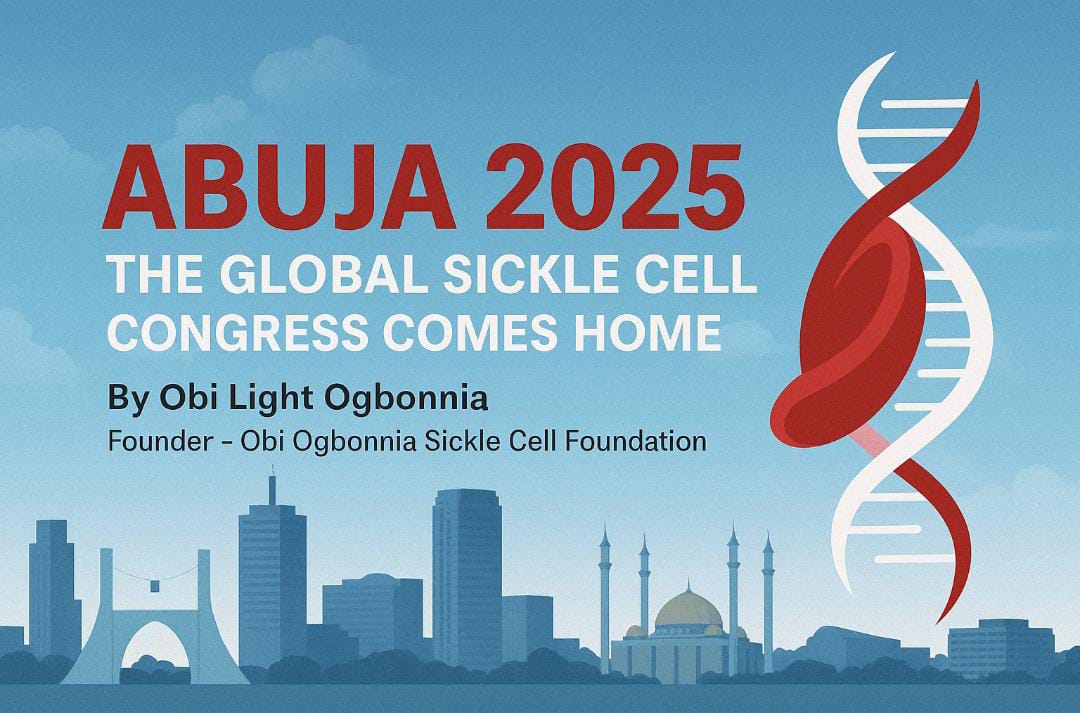
By Obi Light Ogbonnia
When the 5th Global Congress on Sickle Cell Disease convenes in Abuja in June 2025, it won’t just be another event in a long line of medical conferences, it will be a homecoming. For the first time, the world will gather at the very heart of the sickle cell crisis: Nigeria, the global epicenter, where over 150,000 babies are born annually with the condition.
For decades, sickle cell discourse has largely been shaped in the halls of Western research institutions and international conference centers.
Cities like Paris, Atlanta, London, and Accra have hosted past editions, laying foundations for research collaboration, clinical trials, and drug development. Yet none of these cities carry the raw urgency, the lived reality, and the generational impact of sickle cell disorder quite like Abuja does.In Nigeria, sickle cell isn’t just a statistic, it is a daily struggle etched into families, communities, and over four million warriors fighting for survival, dignity, and access to care.
A Turning Point for the Warriors
For Nigeria’s sickle cell warriors, Abuja 2025 carries profound expectations. Many are hoping for more than discussions, they are demanding action. They seek the latest in gene therapy and emerging treatments, but they also need policies that make these breakthroughs accessible. They want to be recognized not just as patients, but as partners in designing their future.
We want to move beyond awareness to empowerment, beyond diagnosis to solutions, beyond pity to partnerships.
Healthcare Systems Must Rise
The Congress is also a moment of truth for Nigeria’s healthcare system. Despite being the sickle cell capital of the world, the country still struggles with basic infrastructure, nationwide newborn screening, early intervention, and accessible care remain far from reach.
Will Abuja 2025 be remembered for grand speeches and panels, or for concrete policy shifts, investment in care centers, and life-changing public health decisions?
From Civil Society to Global Solidarity
This is also a call to action for NGOs, foundations, and global development agencies. From the Obi Ogbonnia Sickle Cell Foundation to international players, Abuja offers a platform to forge scalable models of support, affordable insurance coverage, comprehensive education, mental health care, and grassroots outreach.
Now is the time to go from pilot projects to long-term partnerships that transform lives in underserved communities.
Reflecting on the Past, Building the Future
Past congresses made notable strides. Paris fostered cross-border ideas. Atlanta opened dialogue on health equity. London spotlighted funding and innovation. Accra brought a shift toward African-led solutions. But Abuja must be different, it must be decisive.
If the past was about raising awareness, Abuja 2025 must be about delivering change in the very land where the need is greatest.
The Legacy of the Global Congress
Since its inception, the Global Congress on Sickle Cell Disease has helped move the disorder out of the shadows. It has influenced global health conversations, spurred research, and laid the groundwork for policy advocacy.
Yet, without implementation in countries like Nigeria where the highest burden exists, those milestones risk remaining aspirational.
A Time to Choose Differently
Abuja 2025 is not just another conference; it is a test of commitment, solidarity, and vision. For governments, it is a call to political courage. For the global community, it is a call to equity. For sickle cell warriors, it is a chance to reclaim their narrative.
Sickle cell disorder may be genetic, but how we treat it as a society and as a global community, is a choice.
Let Abuja 2025 be the moment we chose differently.
Obi Light Ogbonnia is a 51-year-old sickle cell warrior, founder of the Obi Ogbonnia Sickle Cell Foundation and advocate for equitable healthcare access in Nigeria. He writes regularly on public health, policy and empowerment for vulnerable communities.
COVER
Over 16,000 Doctors Leave Nigeria in Seven Years – FG
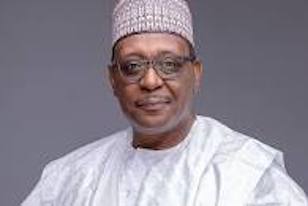
By David Torough, Abuja
The Coordinating Minister of Health and Social Welfare, Prof Muhammad Pate, said over 16,000 Nigerian doctors have left the country in the last five to seven years to seek greener pastures in other countries.
Pate also said the doctor-to-population ratio is now 3.
9 per 10,000 in the country, while the estimated cost of training one doctor exceeds $21,000.This was as he lamented that nurses and midwives who left have also thinned the numbers of healthcare workers in the country.
The minister disclosed this at the seventh annual capacity building workshop of the Association of Medical Councils of Africa in Abuja yesterday with the theme: “Integrated healthcare regulation and leadership in building resilient health systems.
”According to him, an increasing number of Nigeria’s talented healthcare professionals aspire to work in other countries—driven by factors such as economic opportunity, better working conditions, more advanced training, and superior research environments abroad.
He said the migration of health professionals from developing countries is not new, but it has accelerated in recent years.
“In Nigeria alone, over 16,000 doctors are estimated to have left the country in the last five to seven years, with thousands more leaving in just the past few years. Nurses and midwives have also thinned in numbers. The doctor-to-population ratio now stands at around 3.9 per 10,000—well below the suggested global minimum.
“But this trend is not just about people leaving. It represents a fiscal loss. The estimated cost of training one doctor exceeds $21,000—a figure that reflects the magnitude of public financing walking out of our countries. It deeply affects our health systems—leaving many of our rural communities critically underserved.”
He, however, emphasised that the phenomenon offers an opportunity to rethink and reshape the policies, to manage the valuable health workforce in ways that benefit our countries first and foremost.
“In Nigeria, guided by the vision of President Bola Tinubu, who African Heads of State appointed as the AU’s Continental Champion for Human Resources for Health and Community Health Delivery, we are pursuing a new direction. His vision is for Nigeria to become a prosperous, people-oriented country that contributes to a peaceful and thriving continent. Not a standalone Nigeria, but a Nigeria that is interlinked with all our neighbours and sister countries. Under the Renewed Hope Agenda, and within the framework of the Nigeria Health Sector Renewal Investment Initiative, we have embraced a new path—combining strategic realism with visionary ambition.
“The National Policy on Health Workforce Migration is a cornerstone of this path. It is designed to address health workforce migration with dignity—dignity for health workers, for the country, and the profession. It is data-driven, evidence-guided, and signals a clear direction. This is not a restrictive policy, nor is it one born out of resignation. We understand that the global health workforce shortage is at 18 million, and countries in the Global North face their human resource crises due to demographics and other factors. But our response is based on stewardship—balancing the rights of health professionals to seek opportunities abroad with our duty to protect the integrity and viability of our national health system.
“The objectives are clear – To retain and motivate health workers currently serving in Nigeria—thousands of whom work under difficult conditions; to establish ethical norms and explore bilateral frameworks for recruitment, aiming to correct global asymmetries; to expand training capacity—not only for domestic needs, but to contribute to global workforce needs, to enable structured reintegration for the thousands of Nigerian professionals abroad; and to strengthen governance, improve regulatory coordination, and build real-time data systems.”
He urged Africa to lead in forging a new global compact on health workforce mobility—anchored in pan-African training and accreditation standards; shared planning tools, evidence, and data; continental negotiating platforms with destination countries; and sustained investments in the people who care for our people.
The President of AMCOA, Prof Joel Okullo, stressed the importance of collaboration among African countries to tackle healthcare challenges and improve regulation and leadership across the continent.
He expressed the belief that the outcome of the workshop would produce actionable strategies to improve healthcare services across Africa.
“This year’s theme highlights our commitment to tackling the diverse array of challenges within the health regulatory landscape. It seeks to empower AMCOA members and associate members with the wisdom and skills needed for informed strategic and operational decisions in the coming year.
“In this intricate regulatory tapestry, our discussions will illuminate strategies and insights that will bolster regulators’ capabilities. Our focus will revolve around managing health workforce mobility, improving credentialing and information data management systems.
“Let us embark on this journey with enthusiasm and a shared sense of purpose. Our collaborative efforts today and over the next few days will lay the groundwork for transformative changes that will resonate across the healthcare landscape of Africa,” he noted.
The Registrar of the Medical and Dental Council of Nigeria, Dr Fatima Kyari, while welcoming participants to the event, noted that it was Nigeria’s first AMCOA workshop while commending the alignment of leadership towards the shared goal of patient safety.
The Board Chairperson of MDCN, Prof Afolabi Lesi highlighted the need for healthcare regulators to uphold global standards while adapting to local contexts.
Lesi, who is also the Chairman of the Local Organizing Committee for the workshop addressed the challenges of fragmented professional relationships that hinder implementation and compromise patient care.
“The reality is that while we have committed and clear directions at the level of governance, implementation of actions is bedevilled by the fractioned and fractious relationship among health workers who ought to be working as a team, with the patient (well-being and safety) as the primary focus of all our actions,” he said.

